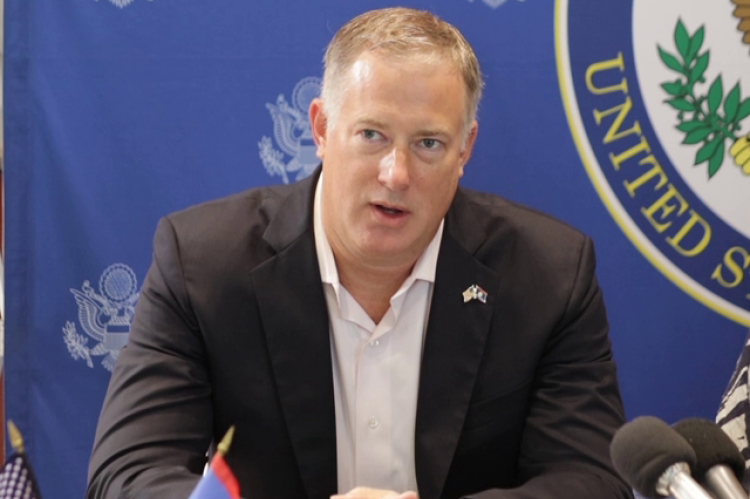"U.S.-Belize Collaboration Bolsters Regional Fight Against Transnational Crime"
By Omar Silva, Editor, National Perspective Belize
Belize City: Thursday, 7th September 2023
In a rare display of unity, a high-level U.S. government delegation recently visited Belize, signaling the deepening collaboration between the two nations in addressing critical regional challenges. The delegation, consisting of representatives from the Office of the Vice President, State Department, Department of Defense, and USAID, underscored the importance of the U.S.-Belize relationship, focusing on key issues such as border security, transnational crime, and migration.
Deputy Assistant Secretary of Defense for the Western Hemisphere, Daniel Erikson, shed light on the specifics of this crucial partnership, emphasizing its regional significance. Erikson highlighted that transnational criminal organizations pose a shared challenge, affecting both Belize and the United States, with broader implications for Central America as a whole.
Enhancing Awareness and Border Security: The delegation discussed initiatives to enhance Belize's awareness of air traffic associated with transnational criminal activities. This effort, led by the Joint Intelligence Operations Center (JIOC), provides Belizean authorities with vital information on overflights, aiding in monitoring and responding to illicit activities. Border security along Belize's western border, characterized by challenging jungle terrain, was also a focal point. The U.S. is actively engaging with Belize to support their strategies for combating trafficking in this area and upholding the rule of law.
The Role of Domestic Law Enforcement: While border security is critical, Erikson emphasized that the primary responsibility for combating transnational organized crime falls on domestic law enforcement agencies, not the military. However, potential areas for military cooperation were explored, recognizing the need for a holistic approach to tackling these criminal activities.
Demand Reduction: Recognizing that the demand for illegal drugs fuels transnational criminal operations, Erikson acknowledged the importance of demand reduction efforts within the United States. These initiatives aim to curtail the demand for illegal substances and related activities, ultimately undermining the sustainability of these criminal organizations.
Regional Cooperation: Erikson stressed the imperative of regional cooperation among Central American governments. This collaboration involves sharing information, strengthening law enforcement cooperation, and collectively addressing the challenges posed by transnational criminal organizations. Belize's leadership in the region was commended, highlighting its significance as both a Central American and Caribbean community member.
In summary, the visit of the U.S. delegation to Belize signifies a deepening of the U.S.-Belize partnership to tackle pressing regional issues, with a particular focus on transnational crime. The collaboration aims to enhance Belize's capabilities, improve border security, reduce demand for illicit activities within the United States, and promote regional cooperation. As the two nations work together, the broader Central American region stands to benefit from a more coordinated and effective response to the shared challenge of transnational criminal organizations.
- Log in to post comments

